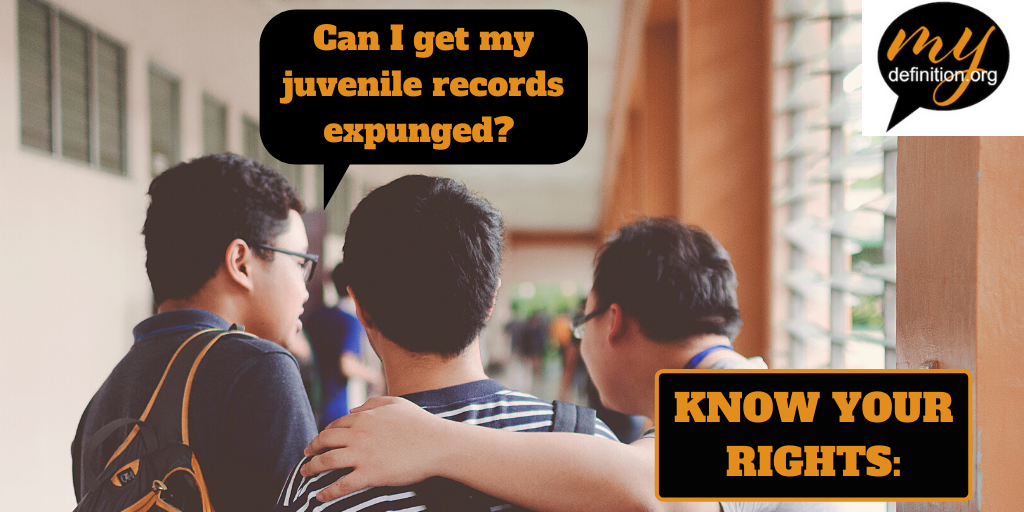
Expungement is the legal process to seal juvenile or criminal records. By sealing your records, the court prevents the public from being able to see your records without a court order.
Juvenile records are generally already closed to the public and considered private. This means they will not appear on background checks for jobs or housing, even if you sign a consent form to release private records.
But there are some big exceptions:
- If you were 16 years old or older when you broke the law, your records are public.
- If you were convicted as an adult, your records are public.
- Juvenile records may also be sent to the youth’s school if the illegal act took place at school or was a serious offense (murder, terroristic threats, sex crimes, etc.).
- Juvenile records may be used in future criminal cases and immigration.
Your juvenile record does not automatically disappear when you turn 18. Courts, prosecutors, probation, police, and the Bureau of Criminal Apprehension (BCA) keep their own records.
These records can affect:
- Your ability to get a job.
- Your ability to go to school.
- Your ability to rent a place to live.
Do I qualify for expungement?
You may qualify if:
- You were arrested but not charged,
- The charges against you were dismissed,
- You were found not guilty,
- You never plead guilty,
- You can show a judge that the benefit from sealing your records is more than any possible harm if people can’t access your records.
How do I get my juvenile records expunged?
The expungement process is long and complicated. It can take at least five months. If you can, you should get help from a lawyer. They can give you advice about the type of information that you should include in the paperwork and make sure that you complete all of the steps. Applications will be denied if any step is missed. If you want to do it for yourself:
- First, get the expungement application from the court’s self-help center or website.
- Fill out the application and all forms completely. It will take several hours.
- Pay the $322 filing fee or request that the court waive the fee if you can’t afford it.
- File the paperwork with the court and get a court date.
- Send legal notice (“service”) to each agency who has your records or may have an opinion about whether your records should be sealed (a prosecutor, BCA, sheriff’s office, police department, Department of Corrections, Attorney General, courts).
- Attend the court hearing.
Disclaimer: This document is intended to be informational. It is not legal advice concerning your specific situation. Please see a lawyer if you need advice about a specific situation.







